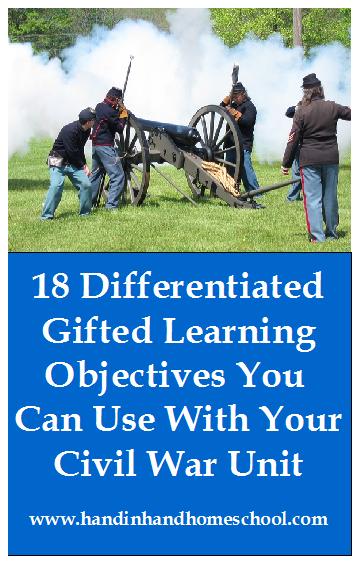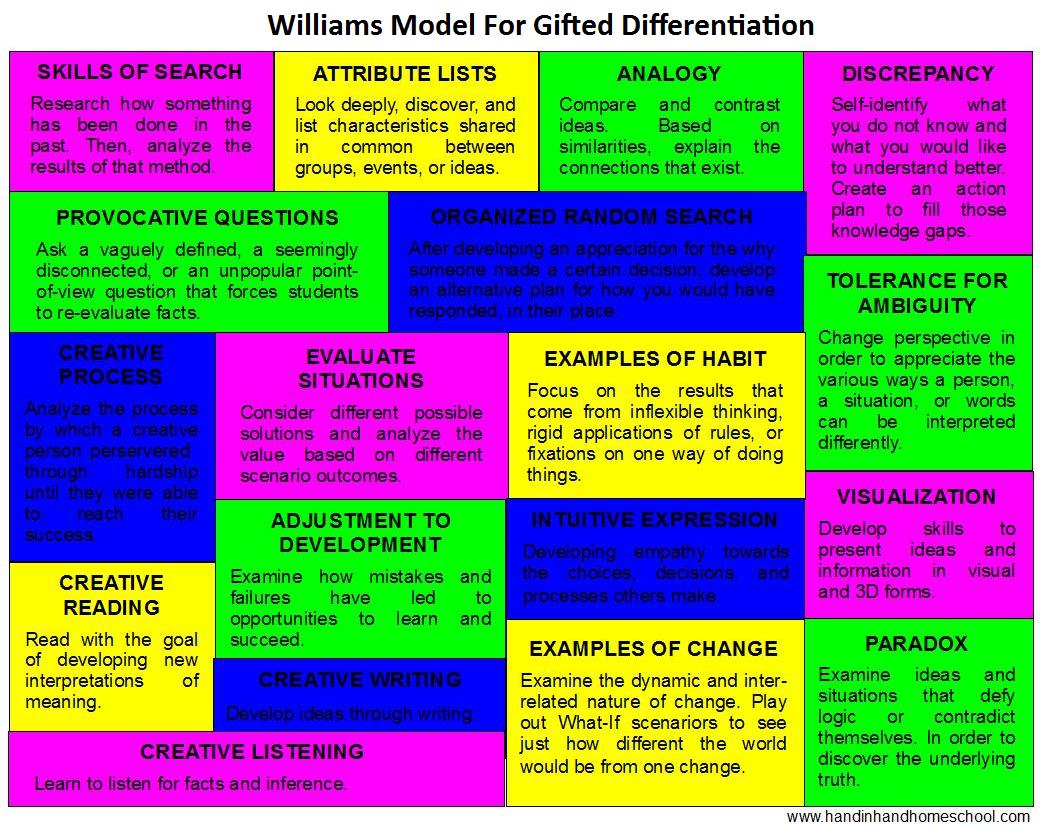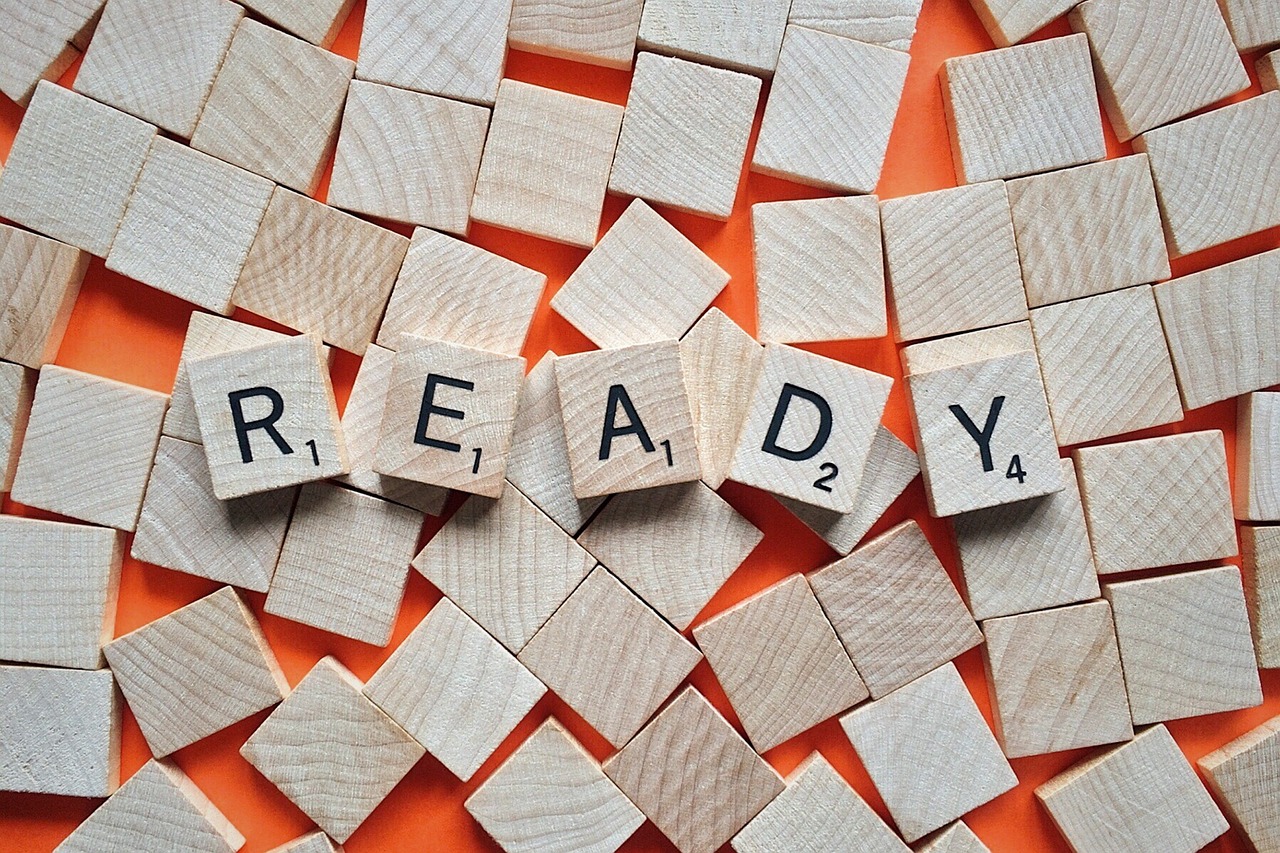Oftentimes teachers and parents recognize that gifted students need to learn something different from what’s in the regular curriculum, but they’re at a loss for what to do. When the child is gifted in math, science, or music, the answer is easy. Give the students higher level math work, hands-on science experiements, or more complex music scores to perform.
But, how do you help a student who is NOT globablly gifted, but clearly excels in the humanities? For many people, that’s the $100K question!
Building a paper mache model of one of Columbus’ ships is not an appropriate gifted differentiation lesson. Neither is making a travel brochure to Ancient Egypt or dressing up like Benjamin Franklin to talk about his kite experiment. These types of hands-on projects amount to busywork that reinforces factual knowledge that the gifted student most likely already mastered before they even entered the classroom.

What gifted kids need – actually, what they crave – are oportunities to think more deeply and to produce meaningful work.
An educational psychologist by the name of Frank Williams created a taxonomy for creative thinking skills. He also developed an 18-point model that helps teachers and parents create guiding questions that can form the basis for a differentiated lesson plan.

Coming up with guided learning questions, that don’t zap you of time or energy can be half the battle of developing a differentiated lesson plan. Using William’s tools for developing creative thinking with gifted kids, we put theory into practice to show you how easy it can be. Take a look at these 18 extension – enrichment – or pullout program ideas you can use with a unit on the Civil War and slavery today.
Finding Truth in Contradictory Statements
Was the cotton gin a break-through invention that ushered in the industrial revolution in America or was it the cause for one our nation’s biggest violations of basic human rights? [Understanding paradoxes]
Identifying Key Characteristics
What were the geographic features of Southern states that guided slaves to escape by land, water, or rail? [Identifying attributes]
Comparing and Contrasting
How was the enslavement and forced migrations of Native Americans similar to what happened to Africans brought to America and enslaved? [Making analogies]
Self-Identifying Knowledge Gaps
What is it that you do not understand about the Civil War? How can you go about learning this new information? [Developing initiative]
Provocative Questions
Should monuments to Confederate Civil War individuals be taken down by museums, towns, and states so they are not seen as promoting or endorsing slavery. [Justifying opinions]
How Change Happens
Would the Black Lives Matter movement exist today if Reconstruction had not been so punitive towards the Southern states? [Interconnections]
Breaking Thinking Habits
Why was singing and dancing more than just a past-time for slaves? [Flexible thinking]
What Would You Do?
Was there a “typical” Underground Railroad safe house owner? What type of privilege did such a person have? If you had been that person, would you have risked being caught housing fugitive slaves? [Appreciating context]
Monday Morning Quarterbacking
Should Abraham Lincoln have immediately repealed the Fugitive Slave Law when he first took office? How would that have effected the ensuing Civil War? [Analyzing results]
What If?
How would America be different today had Abraham Lincoln’s idea for sending freed slaves back to Africa actually been enacted? [Tolerance for ambiguity]
What Would Be Your Do-Over?
If you had lived during the 1850s and inherited your family’s Southern plantation but little or no money, how would you make the decision whether or not to free your slaves – even if it meant you would have lost all your land? [Empathy building]
Learning From the Past
How did the many deaths from the Civil War advance medical science and help save lives during future wars? [Learning from mistakes]
Standing on the Shoulders of Giants
Select a significant figure from the Civil War and read a biography about them. What was it in their life that allowed them to stand out, such as being extraordinarily brave or inventing something? [Assessing strengths and weaknesses]
Grading the Effort
Using an objective military tactics point of view, analyze the efforts of a particular general. What have military leaders since then learned from their mistakes and successes? [Evaluation]
Tie in with Historical Fiction or Nonfiction
Select an historical fiction book – or the written narratives of escaped slave and then discuss how points of view change when you add a more human element to the study of history. [Taking a different perspective]
Listen to Oral Histories
Visit the Library of Congress’ website and listen to oral histories relating to the Civil War. What additional information do you get from hearing an individual tell their personal story? [Inferential listening]
Creative Writing
After reading escaped slave narratives, write a diary entry of what it was like to make it to freedom. [Artistic interpretation]
Make it Visual
Using any number of presentation tools, like Power Point or Prezi, retell an historical account through an interactive medium using visuals or infographics you’ve created. [Creative interpretation]
Last modified on September 3, 2023




